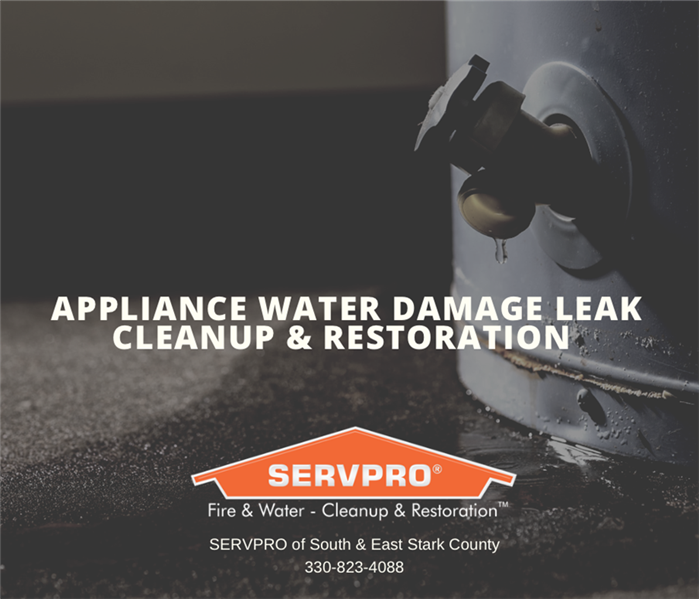How to Prevent Water From Damaging your Home
10/27/2020 (Permalink)
 SERVPRO of South & East Stark County can cleanup after a hot water tank breaks. Our crews were able to restore this basement in Lousiville, Ohio.
SERVPRO of South & East Stark County can cleanup after a hot water tank breaks. Our crews were able to restore this basement in Lousiville, Ohio.
How to keep water from damaging your home! Water can spread quickly throughout your home, ruining your hardwood flooring, drywall, cabinets, and other household items. The good news is that water damage can be prevented with the right knowledge.
Below are several ways you can you protect your home from residential water damage:
- Damaged & Leaky Pipes
Pipes are another large source of water damage in your home. What starts out as a small leak can quickly become a lot of mold in your home. Check the areas where your pipes might be tucked away, such as under the sink, for signs of water leaking for cracks, bulges, stains, and other signs of moisture on your ceiling or floors. If you see any signs of water damage, call a plumber right away to avoid larger problems in the future. Be sure to check and insulate your pipes every year before winter begins. Pipes can rupture and freeze within a few hours, soaking your entire house.
- Appliances
Many of the appliances in your home have running water such as your refrigerator, dishwasher, washing machine and hot water tank. As the appliances get older, their pipes can rust, and their hoses can weaken. Other common water damages include worn gaskets, broken doors, and clogged drains. If these appliances leak, they can release a large amount of water in a short amount of time and cause lots of issues. Make sure that you are caught up on maintenance on your appliances, and check the areas around and behind them regularly for signs of leaks.
- Sinks & Tubs
Bathroom sink, shower and tub drains can become quickly clogged with dirt, grease, hair, and other substances. Pipes can break down, and structural damage is common. If drain clogs are not cleared, problems such as disease, sickness and aggravated health conditions could occur. If left unchecked, clogged drains can cause damage to other places in the home. When water is left running in or near a home it can cause water damage. Be sure to double check that you turn off your sinks, shower, sprinklers, and garden hoses after using them.
Sometimes natural events, such as a big storm, cause flooding in homes. While you cannot prevent weather events, you can help protect your home. Large amounts of water cannot be absorbed by the land, and may overflow into your home. A flood and sump pump alarm and warning system can help you protect your home against a natural water disaster. Install foundation vents or sump pumps. You can also grade your lawn away from the house. Make sure you know where the water main is and shut it off when you leave for an extended period.
- Structural Damage & Leaky Roofs
Moisture dripping through your concrete and crawl spaces can lead to mold and rotting. Check your home regularly for these signs. Cleaning your gutters regularly and maintaining your trees and vegetation will keep unwelcome water from damaging your walls and foundation. Yet another thing that can leak in your home is your roof. If you notice water dripping into your home during a rainstorm, you have an issue with a leaky roof. Consult a professional to fix the issue. Be sure to take care of the problem quickly, especially if you are expecting bad weather in your area.
Residential water damage can be caused by natural disasters, clogged drains, or damaged pipes. With the right precautions, you will not have to worry about water damage for years to come. If you do experience a water damage, calling a professional water clean up and restoration company is the best thing to do to make sure your home is properly dried. Our team at SERVPRO of South & East Stark County is available 24 hours a day at 330-823-4088.






 24/7 Emergency Service
24/7 Emergency Service